While most patients with severe arthritis of their knees will require a total knee replacement, some may be candidates for less-invasive partial knee replacement procedures.
Two of them involve the connection of the thigh and shin bones (medial and lateral compartment), and the third involves the kneecap-thigh bone connection.
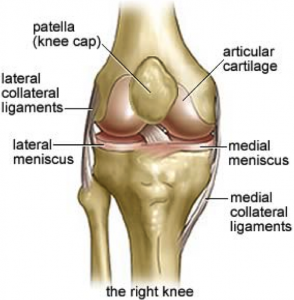
Degenerative arthritis erodes the cartilage away from the knee surface, causing pain:
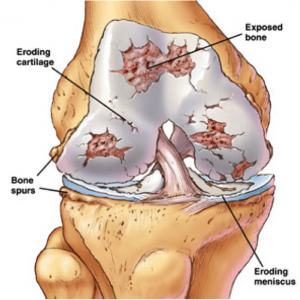
If this arthritis process involves the entire knee, or two of the three compartments, then a “total knee replacement” (or “arthroplasty”), also known as TKR, is required:
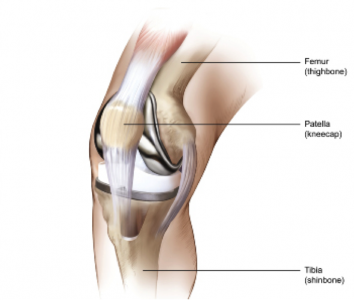
Sometimes, only the medial or lateral compartments are arthritic.
Most commonly, this occurs in the medial compartment:
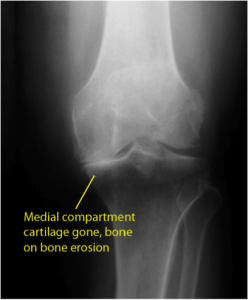
In this situation, patients may be good candidates for a partial knee replacement, in which only the worn compartment is replaced:
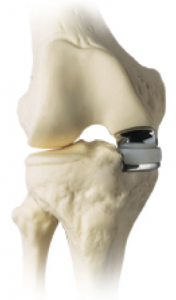
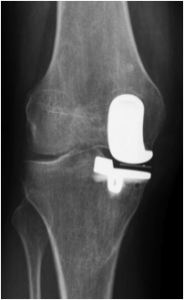
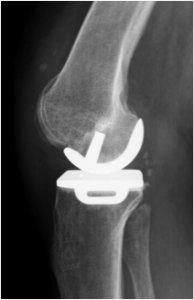
Unicompartmental Knee Replacement
This operation, “unicompartmental knee replacement” (UKR), or a “uni knee,” requires a smaller incision and much less soft-tissue dissection than TKR. As such, it can be performed in an outpatient setting, with less pain, and much faster recovery than a TKR. Most patients are back to nearly normal activities within 6 weeks of surgery.
Also, since the normal remaining joint surfaces and all of the normal ligaments of the knee are kept intact, the knee feels more “normal” to most patients, who often forget it is there.
The long-term results of UKR are excellent, with some series showing a 99% rate of success at 10 years post-implantation. Some patients may have progression of their arthritis into the remaining portions of the knee, and they can then undergo conversion to a total knee.
Requirements for UKR include arthritis in one compartment only, intact ligaments, good range of motion, and not-too-severe an angular deformity pre-operatively.
The orthopedic surgeons at Orthopedic Specialists of Seattle perform UKR commonly at Seattle Orthopedic Center with excellent results.
To see if you are a candidate for UKR, please make an appointment at your convenience for a consultative evaluation and x-ray. See if we can help you get back in the game!

